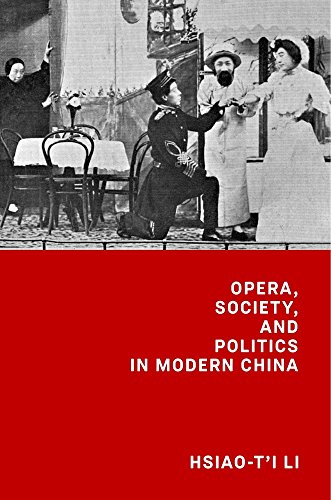Was 'Kung Fu Hustle' Based on Historic Events?
/Remember this awesome movie:
I have been reading a dissertation called, "Opera Society and Politics: Chinese Intellectuals and Popular Culture, 1901-1937," by Li Hsiao-t'i. It is from 1996, and an updated version will be published in 2019 but I could not wait.
Li Hsiao-t'i explains that Beijing Opera used fake weapons [probably because after 1860 it was constantly being performed inside the city gates, where weapons were banned]. However, Shanghai developed a version of Beijing Opera using real weapons, swords, spears, etc... Injuries were common enough and one actor lost an eye. Then he as this bit (on page 192-193):
The main architects of this new theater were two brothers Hsia Yueh-shan (1868-?) and Hsia Yueh-jun (1878-1931), and P'an Yueh-ch'iao (1869-1928). All were professional actors and active in local affairs. In 1911, when various professions of Shanghai rushed to organize merchant militias (shang-t'uan), the Hsia brothers and P'an were in charge of the merchant militia composed of actors. At the time, Shanghai fire-fighters were named the "gang of axes," because these fire-fighters tended to cleave the wardrobes and chests of the disaster-inflicted households before they actually went to put down the fire. [I presume this was to steal stuff.] Out of a sense of indignation, the Hsias established a fire-fighting squad. The majority of the members were young and able-bodied actors who played the roles of warriors in the opera. In 1911, the Hsias and P'an led their young warrior-actors and engaged in a real battle. Joining forces with other merchant militias, they attacked the Kiang-nan Arsenal (Chih-tsao-chu) and made their contribution to the 1911 revolution. [That info is footnoted to Mei Lan-feng 1962, pp. 346-351]
I suspect what he calls here 'merchant militias' are elsewhere called 'guild militias.' Anyway it is fascinating reading. It confirms what I had inferred, that after the Boxer Uprising theater/opera went though a profound transformation. It was under intense pressure to change and how it was to change was hotly debated. One hot detail that caught me off guard: The later founder of the Chinese Communist Party, Chen Duxiu, wrote the first and most important reform-criticism of "old opera" in 1904.

